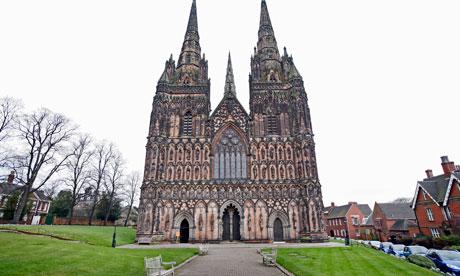
Which British town is furthest from the sea?
The distance from the sea depends how you define "sea". Here in Ilford, tidewater – the River Roding – is just a mile away, but we are 34 miles by rail from Southend-on-Sea, the nearest resort. However, that is an estuary resort, shown by the wide expanse of glorious mud. The nearest good, sandy, seaside beach is Clacton-on-Sea, 63 miles by train.
Towns and cities in the West Midlands conurbation are likely to be furthest from the sea. Though Birmingham is only about 40 miles from tidewater (at Gloucester), the nearest resort is at least twice as far.
Residents of my hometown of Kington, Herefordshire, considered their nearest resort to be Aberystwyth, 60 miles away. This did not stop them contributing generously to lifeboat appeals, and supporting two fried fish shops.
Roger Backhouse, Ilford
The village that is further from the sea than any other human settlement in the UK is Coton in the Elms, Derbyshire. One kilometre south-east is Church Flatts Farm, which is 113km (70 miles) from the nearest point on the coast, or 72km (45 miles) from the nearest tidal water. But the answer would depend on your definition of what constitutes a town. The nearest settlement to Coton in the Elms (population 700 or so) that is indisputably a town is Swadlincote (population 36,000).
pagano
Lichfield in Staffordshire has a plaque indicating England's furthest point from the sea – a distance of 84 miles.
Richard Haywood, Lichfield, Staffs
Meriden is (in)famously the "centre of England".
Pam Lunn, Kenilworth, Warks
It's commonplace to criticise films set in past times for getting the history wrong, but are there any that got it right?
George MacDonald Fraser's book The Hollywood History of the World came to the conclusion that Hollywood got a lot of it right and sometimes made serious contributions to scholarship. He approves of the feel of The Vikings and even Carry On Up The Khyber, though he splutters with derision at John Ford's kilt-filled Mary of Scotland.
But what do you want in the way of getting it right? We seldom know the actual words of historical figures; actors don't usually look like their portraits; and screenwriters have to fit everything into a couple of hours. As with most films, we just have to hope for acceptable compromise and occasional flashes of inspiration.
jno50
Your contributor is a little hard on the film Pearl Harbor (N&Q, 19 April). It did get some things right: the fact that the Americans were taken completely by surprise; and that all the US planes were parked together "for security", making them sitting ducks for the Japanese. It also included authentic incidents aboard the ships, and showed how a few US fighters managed to get airborne and shoot down enemy planes. Notable inaccuracies were the launching of torpedoes throughout the attack, and the plane used by the Ben Affleck character to bring home his fallen comrade being depicted as a DC3, which would not have had the range to reach the Hawaiian islands.
Richard Peters, author, The Battle of Hawaii
Yes – the second world war trilogy of A Generation, Kanal and Ashes And Diamonds by Polish director Andrzej Wajda. The long tracking shot at the beginning of Kanal, which introduces the individual members of the detachment of Polish freedom fighters before they eventually descend to fight in the Warsaw sewers, is among the most memorable in all cinema – as is the brave, heartbreaking image that ends the film. A must-see experience.
Malcolm Johnson, London SW16
Did theologians ever really debate the number of angels that could dance on the head of a pin? If so, what was the argument really about?
The way I've understood the metaphor is that it exemplifies the supra-empirical nature of many aspects of religion. That is, we can't measure heaven, Allah or Ganesha's trunk – and why would we need to? These things are a matter of faith – and debating them in such terms demeans them.
barnabasdoggie
Any answers?
How many black people sailed on the Titanic? How many survived?
William Donnelly Pippins, Alton, Hants
In Groundhog Day does the hotel barman know that Phil Connors (Bill Murray) is repeating the day over and over again?
John Gresham, Merseyside
We are often told to make tea with freshly boiled water. What has previously boiled water lost?
Robert Goundry, Leamington Spa
• Post your questions and answers below or email nq@theguardian.com (please include name, address and phone number).

